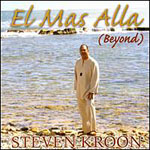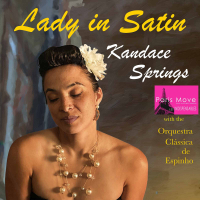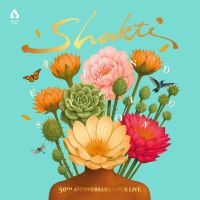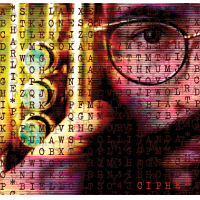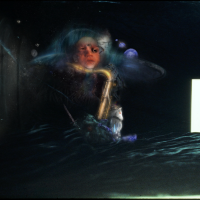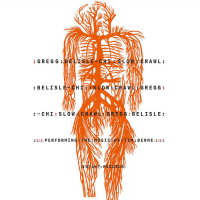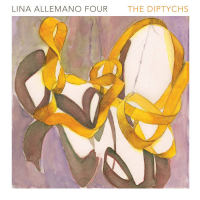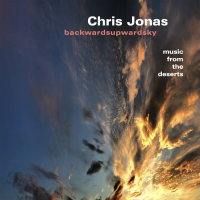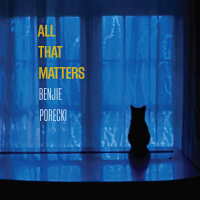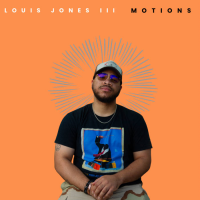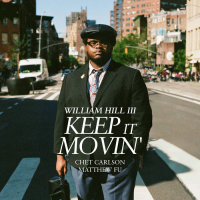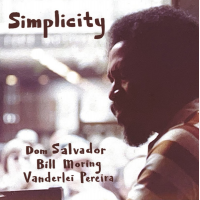Home » Jazz Articles » Extended Analysis » Philip Glass: Philip Glass: Glass Box - A Nonesuch Retrospective
Philip Glass: Philip Glass: Glass Box - A Nonesuch Retrospective
 Philip Glass
Philip GlassGlass Box - A Nonesuch Retrospective
Nonesuch Records
2008
Recent studies have proven that music is one of the few disciplines to utilize the entire brain—the left "analytical" side and the right "creative" side. There's no denying the creative aspect of music making, but equally there's a complexity inherent in certain aspects of composition—the determination, for example, that a rhythm in 5/4 and another in 7/4 will intersect every 35 beats—that require rational thinking—problem solving skills, even. The irrefutable logic of harmony makes it clear, even at its most subconscious, that there's an undeniable logic that coexists with the more intuitive and, at times, even random aspects of music.
The intersection of the creative and analytical may be harder to see in some cases, but the minimalism movement that emerged in the late 1960s to embody the music of divergent classical composers ranging from LaMont Young, Terry Riley, Steve Reich and Philip Glass made it crystal clear. A movement that embraced the idea of working with repetition and the interaction of brief musical fragments to create often long-form works that evolved in ways counter to the more conventional compositional approach of theme-based music, what's been perhaps most notable abut the movement is how those who founded the genre, at least to popular conception, have disavowed it. Glass has apparently suggested that the term be stamped out, his own preference being to describe his work as "music with repetitive structures." It's certainly an apt way to depict the music on Glass Box - A Nonesuch Retrospective, a whopping ten-CD set that examines Glass' work of the past forty years, going right back to early compositions like 1969's "Music in Contrary Motion," and covering significant extended works like "Music in Twelve Parts" (1971-74), as well as operas including "Einstein on the Beach" (1976) and "Akhnaten" (1983), string quartets, symphonies, film music and more.
When comparing the three composers most often brought together under the minimalism umbrella—Reich, Riley and Glass—the comprehensive Glass Box goes a long way toward identifying the major differences between Glass and his companions. Perhaps most significant is the formal and rigorous nature of Glass' music, which contrasts with the more improvisational characteristic of some of Riley's most well-known works and the pulse-driven nature of Reich classics like "Music for 18 Musicians" (1974). Riley's classic "In C" (1964) is based on 52 musical fragments that the musicians in the ensemble must play sequentially, but by giving each player the freedom to choose how long he/she plays any given phrase before moving on to the next, each and every performance of the piece is by definition different than any other. Glass, on the other hand, is all about structure and the explicit and planned interaction of the various segments that coalesce to form any of his compositions.
 What's perhaps most remarkable—and what has clearly differentiated Glass from his contemporaries—is how he has embraced existing forms and found ways to fit his own repetitive structures into them. From opera to symphony, string quartet to piano etude, Glass is the composer who has most fully integrated his own vision within existing stylistic conventions—and, consequently, become one of the most well-known composers of the past half century. Reich and Riley are undeniably composers of equal (or greater) influence amongst musicians—from Soft Machine in the 1970s to more contemporary artists including Swiss pianist Nik Bartsch's "Ritual Groove Music" and Pat Metheny Group's epic The Way Up (Nonesuch, 2005). But by collaborating with everyone from Lou Reed and Paul Simon to creating a two-hour concert work based on the writings of Leonard Cohen, (Book of Longing (Orange Mountain Music, 2007)), Glass has generated the kind of visibility where he may not be a household name, but he's closer to it than any other contemporary classical composer, a clear indicator being a parody seen on the iconic The Simpsons television show.
What's perhaps most remarkable—and what has clearly differentiated Glass from his contemporaries—is how he has embraced existing forms and found ways to fit his own repetitive structures into them. From opera to symphony, string quartet to piano etude, Glass is the composer who has most fully integrated his own vision within existing stylistic conventions—and, consequently, become one of the most well-known composers of the past half century. Reich and Riley are undeniably composers of equal (or greater) influence amongst musicians—from Soft Machine in the 1970s to more contemporary artists including Swiss pianist Nik Bartsch's "Ritual Groove Music" and Pat Metheny Group's epic The Way Up (Nonesuch, 2005). But by collaborating with everyone from Lou Reed and Paul Simon to creating a two-hour concert work based on the writings of Leonard Cohen, (Book of Longing (Orange Mountain Music, 2007)), Glass has generated the kind of visibility where he may not be a household name, but he's closer to it than any other contemporary classical composer, a clear indicator being a parody seen on the iconic The Simpsons television show. Still, popularity does not a significant artist make. Glass has worked with the broadest possible sonic palette, writing music ranging from the small ensemble, multiple keyboard/sax/flute/trumpet/voice-based "Music With Changing Parts" (1970) to using all the instruments an orchestra has to offer on "Symphony No. 3" (1995) and "Symphony No. 8" (2005). Glass has also incorporated ethnic instruments from a variety of cultures, like the Australian didjeridoo, African kora and Indian tanpura on his soundtrack to Powaqqatsi (1987)—the second in director Godfrey Reggio's film trilogy, which included the ground-breaking Koyaanisqatsi (1982) and Naqoyqatsi (2003), all of which Glass scored, and which have collectively created the litmus test when it comes to seamless integration of sight and sound. He's worked with full opera choruses and orchestras on ambitious works like the opera "Satyagraha" (1980) and children's choirs on "Symphony No. 5" (1999), from which a brief edited movement, "Suffering" is included.
As diverse as the contexts within which Glass works are, and as much as he's clearly evolved over the past 40 years, there are characteristics that make his music immediately recognizable. Early works like "Music in Twelve Parts" might be considered hypnotic, except that the relentless nature of Glass' various musical fragments interacting is often too aggressive to lull anyone into a trance-like state. The genius of Glass' approach is how a single pattern might form the basis of a piece like the 20-minute "Part VII," from "Music in Twelve Parts," but it's the constant ebb and flow of other parts along with it, moving from background to foreground—in sometimes imperceptible ways—which create the dynamic and dramatic shifts that keep the piece compelling for over 20 minutes. The frenetic pulse that drives "Part VIII" contrasts with its melody—long, whole tones that rest above the frenzied foundation to create a strange kind of tension-and-release where, while the ear is often drawn to one or the other, the best way to try to listen to the music is to absorb it as a whole.
 An entire disc devoted to Glass' "Glassworks/Analog" (1977-81) show a more beautiful side to Glass and, with "Opening," a clear reference to classical romanticism. It's an early reference to more conventional form, while still applying the use of iteration. "Facades" is even more lyrical, with saxophonist Jack Kripl, a one-time member of the shrinking and expanding Philip Glass Ensemble, soaring over a series of haunting changes given forward motion through Glass' use of constantly moving intervals.
An entire disc devoted to Glass' "Glassworks/Analog" (1977-81) show a more beautiful side to Glass and, with "Opening," a clear reference to classical romanticism. It's an early reference to more conventional form, while still applying the use of iteration. "Facades" is even more lyrical, with saxophonist Jack Kripl, a one-time member of the shrinking and expanding Philip Glass Ensemble, soaring over a series of haunting changes given forward motion through Glass' use of constantly moving intervals. Voice has been a significant part of Glass' palette from the very beginning, from wordless, purely choral works like the title section to "Etoile Polaire" (1977) to the scripted, operatic score to "Satyagraha," where text, adapted from the Bhagavad-Gita is layered as simple melody over a symphonic score that uses counterpoint and polyrhythm to create a complex underpinning that remains accessible throughout. Albert de Ruiter's bass vocal on the opening movement to "Koyaanisqatsi" has become almost iconic, as Glass evolves a lengthy suite where dark-hued simplicity juxtaposes with high velocity on "The Grid," where the meaning of "Koyaanisqatsi"—Life Out of Balance—is made vivid without a single word being uttered.
Glass' longstanding collaboration with Kronos Quartet occupies most of Disc Seven, which features three string quartets broken up by four piano etudes, performed by Glass himself. The entire disc demonstrates Glass' clear allegiance to melody, even as it's contrasted with contrapuntal complexity that should be a challenge to the ears, but isn't. If anything, Glass has become more approachable, with the two symphonies on Disc Nine filled with memorable themes. As the drama builds and dissolves throughout a series of climaxes and brooding passages of ethereal beauty, Glass' mathematical approach to repetition should be the antithesis of resonance, but isn't.
The final disc, which comprises excerpts from films spanning the years 1984 through 2003, is perhaps the most revealing disc of all. Glass composes for string quartet on his soundtrack to Tod Browning's classic Dracula (1931) and Paul Schrader's Mishima (1984); scores a larger symphonic rewrite of Jean Cocteau's La Belle et la Bete (1946); evokes a spare piano etude turned choral anthem for Bernard Rose's Candyman (1992); and turns melancholy on "The Poet Acts," from Stephen Daldry's The Hours (2002), which also features pianist and longtime musical cohort Michael Riesman. Regardless of the context, Glass shapes his personal musical aesthetic into whatever form best serves each film, creating a 70-minute suite that may not have originally been conceived together, but here becomes a cohesive and unified listen that, when compared to the raw materials of Disc One's early works, highlights just how Glass has evolved them into a distinct and unique shape all its own.
 With a discography as large as Glass' even the ten CDs of Glass Box only scratch the surface. Still, for those unfamiliar with the breadth of Glass' work, Glass Box - A Nonesuch Retrospective is a perfect primer that will lead to the discovery of even greater diversification in a discography of over fifty albums dedicated to Glass' writing alone, and countless more featuring his work alongside many of his contemporaries. For those familiar with Glass, Glass Box collects some of his best work into individual, theme-based collections, that not only point to the value of the complete recordings, but stand alone as compelling, self-contained anthologies.
With a discography as large as Glass' even the ten CDs of Glass Box only scratch the surface. Still, for those unfamiliar with the breadth of Glass' work, Glass Box - A Nonesuch Retrospective is a perfect primer that will lead to the discovery of even greater diversification in a discography of over fifty albums dedicated to Glass' writing alone, and countless more featuring his work alongside many of his contemporaries. For those familiar with Glass, Glass Box collects some of his best work into individual, theme-based collections, that not only point to the value of the complete recordings, but stand alone as compelling, self-contained anthologies. Tracks: CD1 Early Works (1969-70): Music in Contrary Motion (1969); Music With Changing Parts (1970) (edited); Music in Similar Motion (1969). CD2 From Music in Twelve Parts (1971-74): Part VII; Part VIII; Party IX; Part X. CD3 From Einstein on the Beach (1976): Knee Play 1; Train 1 (edited); Knee Play 2; Knee Play 3; Trial 2/Prison "Prematurely Air-Conditioned Supermarket" (edited); Knee Play 4; Bed: Prelude; Spaceship; Knee Play 5. CD4 Glassworks/Analog (1977-82): From the Orange Mountain Archive: Opening, Facades, Floe, Closing; From Etoile Polaire: Etoile Polaire, River Run, Ade Years What? (For Marianne Moore), Ange des Orages, Ave, Montage; From Dressed Like an Egg (1977): Dressed Like an Egg: Part IV, Dressed Like an Egg: Part V, Mar Rush for Organ. CD5: From Satyagraha (1980): Act I (Tolstoy), Scene 1: The Kuru Field of Justice; Act I (Tolstoy), Scene 2: Tolstoy Farm (1910); Act II (Tagore), Scene 1: Confrontation and Rescue (1896); Act II (Tagore), Scene 3: Protest (1908); Act II (King), Scene 1: Newcastle March (1913) - Part 3: Evening Song. CD6 From Koyaanisqatsi & Powaqqatsi (1982-87): From Koyaanisqatsi (1982): Koyaanisqatsi, Organic, Cloudscape, Resource, Vessels, The Grid, From Powaqqatsi (1987): Serra Pelada, Train to Sao Paulo, Video Dream, New Cities in Ancient Lands: China, New Cities in Ancient Lands: Africa, New Cities in Ancient Lands: India, Powaqqatsi. CD7 String Quartets & Piano Etudes (1984-91): String Quartet No. 2 ("Company"): Movement I, Movement II, Movement III, Movement IV; Etude for Piano No. 2 (1994); Etude for Piano No. 9 (1994); String Quartet No. 5 (1991): Movement I, Movement II, Movement III, Movement IV, Movement V; Etude for Piano No. 5 (1994); Etude for Piano No. 3 (1994); String Quartet No. 4 ("Buczak") (1989): Movement I, Movement II, Movement III. CD8 From CIVIL wars, Hydrogen Jukebox, Symphony No. 5, Akhnaten: From CIVIL wars: a tree is best measured when it is down Act V - The Rome Section (1983): Prologue; From Hydrogen Jukebox (1990): Song #3: From Iron Horse, Song #2: Jaweh and Allah Battle, Song #11: From The Green Automobile, Song #9: From Nagasaki Days (Numbers in Red Notebook), Song #10: Aunt Rose, Song #6: From Wichita Vortex Sutra; From Symphony No. 5 ("Requiem, Bardo, Nirmanakaya"): Suffering (edit); From Akhnaten (1983): Act I (Year 1 of Akhnaten's Reign - Thebes), Scene 1: Funeral of Amenhotep, Act I (Year 1 of Akhnaten's Reign—Thebes), Scene 3: The Window of Appearances (edited), Act II (Year 17 and the Present—Akhetaten), Scene 4: Epilogue. CD9 Symphonies No. 3 & 8 (1995-2005): Symphony No. 3 (1995): Movement I, Movement II, Movement III, Movement IV; Symphony No. 8 (2005): Movement I, Movement II. CD10 Filmworks (1984-2003): From Mishima (1984): Opening, November 25: Morning, Closing; From The Secret Agent (1996): The First Meridian, The Secret Agent; From Kundun (1997): Sand Mandala, DistraughtLhasa at Night, Escape to India; From Anima Mundi (1992): Living Waters, The Witness; From La Belle et la Bete (1995): Overture; From The Thin Blue Line (1989): Houston Skyline; From Dracula (1999): Dracula, The Storm, Dr. Van Helsing and Dracula; From The Fog of War (2003): The War to End All Wars; From Candyman (1992): It Was Always You, Helen; From The Truman Show (1998): Raising the Sail; From The Hours (2002): The Poet Acts.
Personnel: Philip Glass: electric organ (CD1), keyboards (CD2, CD10#12), Farfisa organ (CD4#5-13), Yamaha organ (CD4#5-13), Hammond organ (CD4#5-13), Fender Rhodes (CD4#5-13), ARP synthesizer (CD4#5-13), piano (CD7#5-6, CD7#12-13, CD8#2-7); Barbara Benary: electric violin (CD1#2), voice (CD1#2); Steve Chambers: electric organ (CD1#2-3); Jon Gibson: electric organ (CD1#2), soprano saxophone (CD1#2-3, CD2, CD3#2, CD3#9, CD6#1-6, CD10#12), flute (CD1#2, CD2, CD3#8-9, CD6#1-6, CD10#12), voice (CD1#2), clarinet (CD6#1-6), saxophone (CD6#7-14), didjerido (CD6#7-14); Dickie Landry: soprano saxophone (CD1#2-3, CD4#5-13)), tenor saxophone (CD1#2, CD4#5-13), piccolo (CD1#2), flute (CD1#2, CD4#5-10), voice (CD1#2); Kurt Munkacsi: engineer (CD1#2-3), electronics (CD1#2-3), sound design (CD3#9); Arthur Murphy: electric piano (CD1#2-3); Robert Prado: trumpet (CD1#2), flute (CD1#2-3), voice (CD1#2); Michael Riesman: musical director (CD2, CD10#12), keyboards (CD2, CD3, CD6, CD10#13), piano (CD4#1-4, CD10#6-9, CD10#20), synthesizer (CD4#1-2, CD10#6-9), piano soloist (CD4#4), conductor (CD4#4, CD6#1-6, CD10#1-13, CD10#17-18), celeste (CD10#6-9); Lisa Bielawa: voice (CD2), soprano voice (CD3); Martin Goldray: keyboards (CD2, CD3, CD6#7-14, CD8#2-7, CD10#12), conductor (CD8#2-7); Richard Peck: alto saxophone (CD2, CD3, CD10#12), tenor saxophone (CD2, CD3, CD6#1-6), flute (CD3), soprano saxophone (CD6#1-6, CD10#12), score analysis (CD8#9-11); Andrew Sterman: flute (CD2, CD3, CD6#1-6, CD10#12), soprano saxophone (CD2, CD8#2-7, CD10#12), bass clarinet (CD3, CD6#1-6, CD8#2-7, CD10#12), piccolo (CD3, CD6#1-6, CD10#6-9, CD10#12); Lucinda Childs: spoken text (CD3#1, CD3#3, CD3#5, CD3#9); Sheryl Sutton: spoken text (CD3#1, CD3#3, CD3#5, CD3#9); Marion Beckenstein: solo voice (CD3#2), soprano voice (CD3); Katie Geissinger: solo voice (CD3#2), mezzo-soprano voice (CD3); Gregory Fulkerson: violin (CD3); Kristin Nordeval: solo voice (CD3#8), soprano voice (CD3); Jasper McGruder: spoken text (CD3#9); Michele A. Eaton: soprano voice (CD3, CD8#2-7); Margo Gezairlian Grib: mezzo-soprano voice (CD3); Elsa Higby: mezzo-soprano voice (CD3); Jeffrey Johnson: tenor voice (CD3); John Koch: tenor voice (CD3); Eric W. Lamp: tenor voice (CD3); Jeff Kensmoe: baritone voice (CD3); Gregory Purnhagen: baritone voice (CD3, CD8#2-7, CD10#12); Peter Stewart: baritone voice (CD3); Jack Kripl: saxophone (CD4#1-2, CD6#7-14), flute (CD6#7-14), piccolo (CD6#7-14); Miles Green: keyboards (CD4#3); Stuttgart Chamber Orchestra (CD4#4); Joan La Barbara: voice (CD4#5-10); Gene Rickard: voice (CD4#5-10); Iris Hisky: voice (CD4#11-13); The New York City and Opera (CD5); Christopher Keene: conductor (CD5); Douglas Perry: tenor voice (CD5); Claudia Cummings: soprano voice (CD5); Rhonda Leiss: alto voice (CD5); Robert McFarland: baritone voice (CD5); Scott Reeve: bass voice (CD5); Sheryl Woods: soprano voice (CD5); Albert de Ruiter: bass vocal (CD6); Phyllis Elaine Clarke: soprano vocal (CD6#1-6), William Zukof: countertenor voice (CD6#1-6); Neil Farrell: tenor voice (CD6#1-6); Michael Steinberger: tenor voice (CD6#1-6); Elliot Z. Levine: baritone voice (CD6#1-6); Richard Sortomme: viola (CD6#1-6); Kathleen Foster: viola (CD6#1-6); Stephanie Fricker: viola (CD6#1-6, CD10#10-12); Lois Martin: viola (CD6#1-6); Martha Mooke: viola (CD6#1-6); Masako Yanagita: viola (CD6#1-6); Richard Sher: cello (CD6#1-6, CD10#6-9); Seymour Barab: cello (CD6#1-6, CD10#12); Sarah Carter: cello (CD6#1-6); Marisol Espada: cello (CD6#1-6);E. Zoe Hassman: cello (CD6#1-6); Joseph Kimura: cello (CD6#1-6);Garfield Moore: cello (CD6#1-6); Matthias D. Naegele: cello (CD6#1-6); John Beal: double-bass (CD6#1-6); Paul Harris: double-bass (CD6#1-6); Peter Gordon: French horn (CD6#1-6); Robert Carlisle: French horn (CD6#1-6); Wilmer Wise: trumpet (CD6#1-6, CD10#6-9); Lorraine Cohen-Moses: trumpet (CD6#1-6); Philip Ruecktenwald: trumpet (CD6#1-6); James Pugh: trombone (CD6, CD10#12); Dennis Elliot: trombone (CD6#1-6, CD10#10-11); Alan Raph: bass trombone (CD6#1-6, CD10#6-9, CD10#12), trombone (CD6#7-14, CD10#10-11), tuba (CD6#7-14, CD10#12); Kyle Turner: tuba (CD6#1-6); Foday Musa Suso: kora (CD6#7-14), balafon (CD6#7-14), dousongoni (CD6#7-14), nyaner (CD6#7-14), kari nyan (CD6#7-14); Shaikh Fathy Mady: vocal solo (CD6#7-14); Joe Passafro: percussion (CD6#7-14); Sue Evans: percussion (CD6#7-14); Roger Quitero: percussion (CD6#7-14); Valerie Naranjo: percussion (CD6#7-14); Hispanic Young People's Chorus/Coro Juvenil Hispano, Angelica Rosa Sepulveda, musical director (CD6#7-14); Sergiu Schwartz: violin (CD6#7-14, CD10#13); Sanford Allen: violin (CD6#7-14, CD10#10-12); Elliott Rosoff: violin (CD6#7-14); Karen Karlsrud: violin (CD6#7-14, CD10#12); Richard Sortomme: violin (CD6#7-14);Linda Quan: violin (CD6#7-14, CD10#12); Carol Pool: violin (CD6#7-14); Jill Jaffe: viola (CD6#7-14, CD10#10-11); Karl Bargen: viola (CD6#7-14, CD10#13); Lois Martin: viola (CD6#7-14); Jack Rosenberg: viola (CD6#7-14); Seymour Barb: cello (CD6#7-14); Barbara Wilson: double-bass (CD6#7-14, CD10#10-11, CD10#13); Michael Parloff: flute and piccolo (CD6#7-14); Diva Goodfriend-Koven: flute and piccolo (CD6#7-14); Jorge Joven: Quena ensemble (CD6#7-14); Miguel Grande: Quena ensemble (CD6#7-14); Jefa Ronda: Quena ensemble (CD6#7-14); John Moses: clarinet (CD6#7-14); Steve Hartman: clarinet (CD6#7-14, CD10#6-11), bass clarinet (CD10#6-9); Laura Flax: clarinet (CD6#7-14); Steve Elson: saxophone (CD6#7-14); Lauren Goldstein: bassoon (CD6#7-14); Ethan Bauch: bassoon (CD6#7-14); Mike Finn: bassoon (CD6#7-14); Wilmer Wise: trumpet (CD6#7-14, CD10#13); Lorraine Cohen: trumpet (CD6#7-14); Bill Rhodin: trumpet (CD6#7-14); Neil Balm: trumpet (CD6#7-14); Sharon Moe: French horn (CD6#7-14, CD10#6-13); Joe Anderer: French horn (CD6#7-14); Ann Yarbrough: French horn (CD6#7-14); Tony Miranda: French horn (CD6#7-14, CD10#13); Alan Spanger: French horn (CD6#7-14); Keith Oquinn: trombone (CD6#7-14); Jeffrey Rona: keyboards (CD6#7-14); Paul Rice: keyboards (CD6#7-14); Lee Curreri: keyboards (CD6#7-14); Frank Menusan: tanpura (CD6#7-14); David Harrington: violin (CD7#1-4, CD7#7-11, CD7#14-16, CD10#1-3, CD10#14-16); John Sherba: violin (CD7#1-4, CD7#7-11, CD7#14-16, CD10#1-3, CD10#14-16); Hank Dutt: viola (CD7#1-4, CD7#7-11, CD7#14-16, CD10#1-3, CD10#14-16); Joan Jeanrenaud: cello (CD7#1-4, CD7#7-11, CD7#14-16, CD10#1-3, CD10#14-16); American Composers Orchestra (CD8#1); Dennis Russell Davies, conductor (CD8#1, CD8#8-11, CD9); Denyce Gravers: mezzo-soprano voice (CD8#1); Sondra Radvanovsky: soprano voice (CD8#1); Zheng Zhou: baritone voice (CD8#1, CD10#12); Carol Wincenc: flute (CD8#2-7, CD10#6-11); Frank Cassara: percussion (CD8#2-7); Jim Pugliese: percussion (CD8#2-7); Elizabeth Futral: soprano voice (CD8#2-7); Mary Ann Hart: mezzo-soprano voice (CD8#2-7); Richard Fracker: tenor voice (CD8#2-7); Gregory Purnhagen: baritone voice (CD8#2-7); Nathaniel Watson: baritone voice (CD8#2-7); Allen Ginsberg: narrator (CD8#2-7); Anna Maria Martinez: soprano voice (CD8#8, CD10#12); Denyce Graves: mezzo-soprano voice (CD8#8); Michael Schade: tenor voice (CD8#8); Eric Owens: baritone voice (CD8#8); Albert Dohmen: bass-baritone (CD8#8); Vienna Radio Symphony Orchestra (CD8#8); Morgan State University Choir, Nathan Carter, Musical Director (CD8#8); Hungaran Radio Children's Choir, Gabriella Thesz, Musical Director, Dante Zanzolini, Assistant Conductor (CD8#8); Anton Zapf: assistant conductor (CD8#9-11); Ulrich Eistert: chorus master (CD8#9-11); Paul Essenwood: countertenor voice (CD8#9-11); Milagro Vargas: alto voice (CD8#9-11); Melinda Liebermann: soprano voicve (CD8#9-11); Tero Hannula: baritone voice (CD8#9-11); Helmut Holzapfel: tenor voice (CD8#9-11); Cornelius Hauptmann: bass voice (CD8#9-11); Victoria Schneider: soprano voice (CD8#9-11); Lynne Wilhelm-Koniger: soprano voice (CD8#9-11); Maria Koupilova-Ticha: soprano voice (CD8#9-11); Christina Wachtler: alto voice (CD8#9-11); Geraldine Rose: alto voice (CD8#9-11); Angelika Schwartz: alto voice (CD8#9-11); David Warrilow: narrator (CD8#9-11); Stuttgart Chamber Orchestra (CD9#1-4); Bruckner Orchester Linz (CD9#5-7); The English Chamber Orchestra (CD10#4-5); Susan Jolles: harp (CD10#4-9); Fred Sherry: cello (CD10#4-5); Henry Schuman: English horn (CD10#4-9), oboe (CD10#4-5); Keith Underwood: flute (CD10#4-5), piccolo (CD10#4-5); Dhondup Namgyal Khorko: Tibetan horns and cymbals (CD10#6-9); Lauren Goldstein-Stubbs: bassoon and contrabassoon (CD10#6-9); Gordon Gottlieb: percussion (CD10#6-9, CD10#13); Gyuoto Monks (CD10#6-9); Monks of the Drukpa Order (CD10#6-9); Timothy Baker: violin (CD10#10-11); Mayuki Fukuhara: violin (CD10#10-11); Mary Rowell: violin (CD10#10-11); Masako Yanagita: violin (CD10#10-11); Larry Lenske: cello (CD10#10-11); Timothy Malosh: piccolo (CD10#10-11); Leonard Arner: oboe (CD10#10-11); Allen Spanjer: French horn (CD10#10-11); William Rohdin: trumpet (CD10#10-11); Lee Soper: trumpet (CD10#10-11); Rex Benincasa: percussion (CD10#10-11); Jeannie Gagne: soprano voice (CD10#10-11); Dora Ohrenstein: soprano voice (CD10#10-11); Patricia Dunham: alto voice (CD10#10-11); Linda November: alto voice (CD10#10-11); David Dusing: tenor voice (CD10#10-11); David Frye: tenor voice (CD10#10-11); Alexander Blachly: baritone voice (CD10#10-11); Bruce Rogers: baritone voice (CD10#10-11); Eleanor Sandresky: keyboards (CD10#12); Janice Felty: mezzo-soprano voice (CD10#12); John Kuether: baritone voice (CD10#12); Hallie Neill: soprano voice (CD10#12); Tim Baker: violin (CD10#12-13); Regis Iandiorio: violin (CD10#12); Jenny Koo: violin (CD10#12); Jan Mullen: violin (CD10#12); Alfred Brown: viola (CD10#12); John Dexter: viola (CD10#12); Semyon Fridman: cello (CD10#12); Beverly Lauridsen: cello (CD10#12); Charles McCracken: bassoon (CD10#12); Steven Burns: trumpet (CD10#13); Ron Sell: French horn (CD10#13); Michael Parloff: flute (CD10#13); Judith Mendenhall: flute (CD10#13); Chris Finkel: cello (CD10#13); Brian Koonin: guitar (CD10#13); Rolf Wilson: violin (CD10#20); Edmund Coxon: violin (CD10#20); Nicholas Barr: viola (CD10#20); David Daniels: cello (CD10#20); Chris Laurence: double-bass (CD10#20); Nick Ingman: conductor (CD10#20).
Personnel
Philip Glass
composer / conductorAlbum information
Title: Philip Glass: Glass Box - A Nonesuch Retrospective | Year Released: 2008 | Record Label: Nonesuch Records
Tags
PREVIOUS / NEXT
Support All About Jazz
 All About Jazz has been a pillar of jazz since 1995, championing it as an art form and, more importantly, supporting the musicians who make it. Our enduring commitment has made "AAJ" one of the most culturally important websites of its kind, read by hundreds of thousands of fans, musicians and industry figures every month.
All About Jazz has been a pillar of jazz since 1995, championing it as an art form and, more importantly, supporting the musicians who make it. Our enduring commitment has made "AAJ" one of the most culturally important websites of its kind, read by hundreds of thousands of fans, musicians and industry figures every month.



